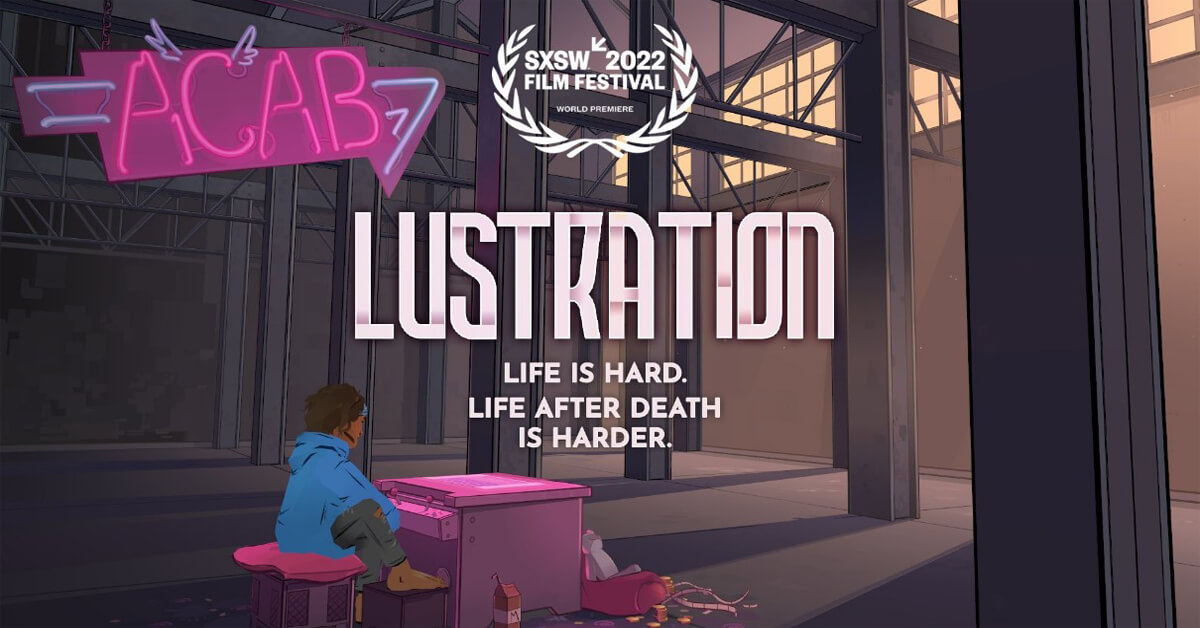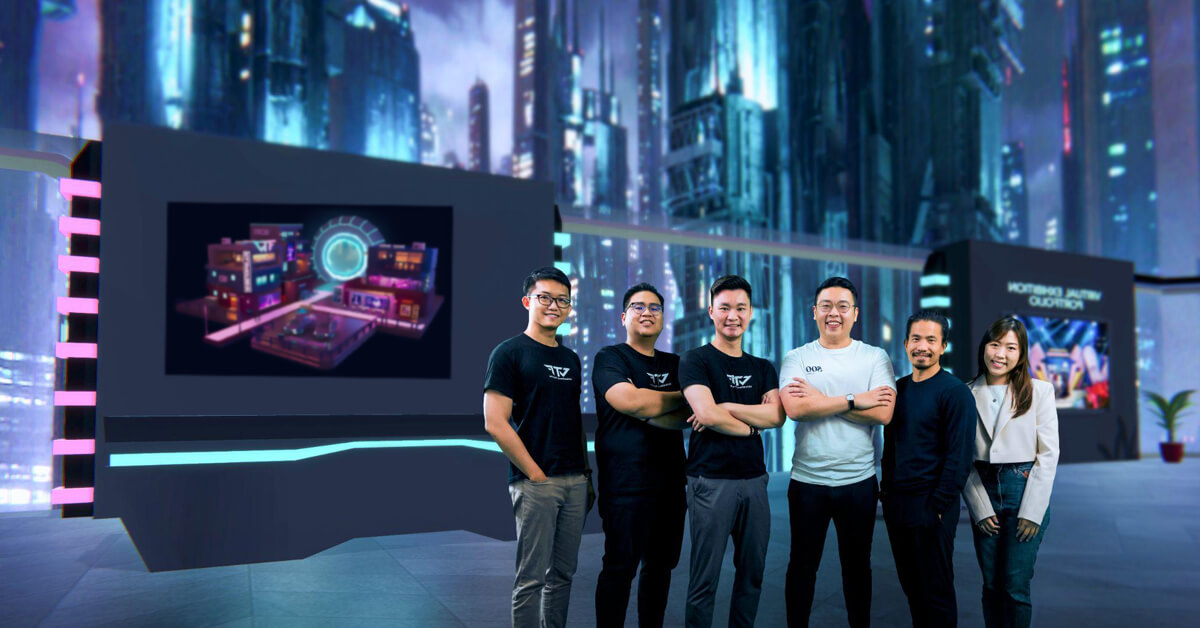In this series, we interview the founders and CEOs behind Metaverse companies. The metaverse is fully in development, and many different technologies are involved in this process. These inspiring people are at the frontier of developing a future where the online and physical worlds merge.
In this article, we interview Nathan Anderson. Nathan is the Co-Founder, CEO, and Executive Producer of New Canvas. New Canvas is a next-generation XR media company that produces and publishes immersive content in the metaverse for digital-first audiences with an unapologetic focus on diversity, equity, inclusion, and belonging.

Can you tell us a bit about yourself?
I started working in Film and TV before switching to the dotcom space in 2000. I have since produced digital content on all platforms and devices. In 2015, I tried virtual reality for the first time and never looked back. As a creative producer, I love generating new ideas and putting the right people in place to bring them to fruition. I am passionate about the convergence of story and tech and how this can generate new meaning and connections.
What is the metaverse, according to you?
To me, the metaverse is as simple as an interconnected set of spatial environments where individuals can feel present with others even though they are not physically in the same place. A place where we can work, communicate, entertain ourselves and interact with each other that is not governed by physical restraints. Beyond being a much-hyped buzzword, it’s a reality, and we see it as the future of entertainment that’s just starting to take shape now.
When and how did you realize the metaverse was going to be real?
I first sensed the potential when I first got into VR in 2015; however, it has only really coalesced as a set of tech and behaviors for me in the last 18 – 24 months. The landscape has recently changed dramatically, with various use cases emerging for the technology and an influx of experiences emerging to feed people’s interests and fill their time and desire to connect during the pandemic lock years.
For long-term industry practitioners such as myself, this shift is a compelling justification of why we love XR and believe in the reality of the metaverse and how it will impact the future of our society. And newsflash for the haters out there… The metaverse won’t be built by one company.
According to you, what does it take for the metaverse to become mainstream?
More compelling and useful XR hardware, combined with real (and simple) interpersonal connection capabilities where we can feel as though we are present.
I think Mixed Reality functionality is a great stepping stone. Still, aside from the tech, it will take content creators to evolve the content formats we have used in all other media formats to find the native content formats for the metaverse. What can it offer that we cannot get elsewhere? All dominant platforms have been able to solve this challenge. It is now up to us in the immersive industries to work it out.

What triggered you to start your metaverse company?
A passion for exploring new and unknown territories. A constant sense of wonder about what is possible as technology keeps evolving. A love to tell stories and entertainment. One of the things I was looking to do with the new business is ensure we’re being careful and specific about the projects we work on. We feel that there’s a lot that we still need to learn about, including how to create a format that will be compelling for audiences.
It just feels like the right time to get out with New Canvas and focus purely on intentions in this evolving entertainment space.
What’s the story behind your company?
New Canvas is a next-generation media company focused on innovation and experimentation with narrative-based immersive experiences. Just as our predecessors did with cinema in the early 20th century or TV in the 1950s, we want to crack the code for how to make this medium irresistible and drive mainstream adoption.
My Co-Founder, Wadooah Wali, and I were philosophically aligned in our excitement, curiosity, and desire to push ‘the next’ and see what’s possible, i.e., a next-generation XR/VR media company for storytelling and immersive entertainment that could also build in NFTs, social tokens, DAOs, etc. into the overall business model. We both have previously worked within traditional and new/digital media worlds, so we were inspired to break away from the known and explore the unknown.
What does your company solve?
Media must adapt as consumers’ entertainment appetites continue to evolve and demand new forms of entertainment. Mainstream entertainment is passive, linear, and restrained by frame. The current focus on content in the metaverse is gaming and lacks the emotional resonant punch of story-based media, leaving the largest market share underserved. We are tackling these challenges on two sides.
The first is to generate a new model for entertainment where audiences are active and immersed in the story. Second, we want to derive a new approach for how audiences can become creative and commercially engaged communities around a property using Web3 and blockchain technology.
John Radoff describes the value chain of the metaverse with 7 layers. In which layer(s) does your company operate? Can you give an example?
The Experience layer. We are operating at the endpoint of the value chain, direct to consumers and metaverse users. New Canvas produces compelling, immersive media content that engages audiences and creates communities. As an example of this, our first VR series (under the New Canvas banner), ‘Lustration’ was co-funded by Meta and is currently live in Meta’s Oculus TV store for viewing by global audiences on their Quest headsets.
It continues to receive critical acclaim and recognition throughout the 2022 film festival season, including Venice Immersive since its official launch and World Premiere at SXSW 2022.
Who were the people who have been the most helpful in getting you to where you are today? How did they impact your life and your success?
Apart from the obvious candidates like my father, mother, and, more recently, wife, I have gained the most from my founding partners within the several businesses I participated. Previously with Kain Tietzel, Jaeger Battersby, Angus Stevens, and Martin Taylor when I was at Start VR (now Start Beyond) and most recently with Wadooah Wali, my business partner at New Canvas. Working with these peers has taught me a lot and enabled personal growth that I could not do alone. Along with that, a super valuable producing partner, Carolina Sorensen, has been instrumental in several of the titles I am most proud of.
What do you hope the metaverse will look like in 10 years?
I hope the metaverse will be transformative for our society. I see it as a way to connect and empathize with each other in ways we cannot currently know. A force for good that will enable a better path for humanity into the future. The metaverse in 2032 will be well-established for professional and enterprise use cases and will emerge as the dominant media environment for entertainment, leisure, and socialization across all demographics.
How do you envision your company’s role within the metaverse in 10 years?
We want to be one of the pioneers of this new media ecosystem. We are creating compelling, immersive experiences that can generate engaged communities. Our goal in 10 years is to have a diverse slate of 20+ content-powered communities, contributing to and consuming immersive entertainment in the metaverse.
Each fan community will have layers of engagement from passive consumer to core creator roles, with all parties benefiting in a self-sustaining and mutually rewarding manner that incorporates blockchain technology and, eventually, other Web3 tools.










Leave A Comment